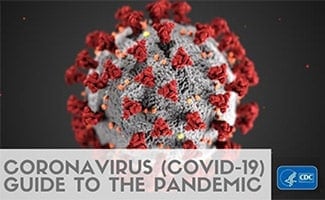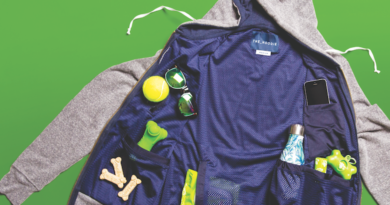Can Dogs Get Coronavirus? Tips To Keep You & Your Pup Safe
To sustain this free service, we receive affiliate commissions via some of our links. This doesn’t affect rankings. Our review process.
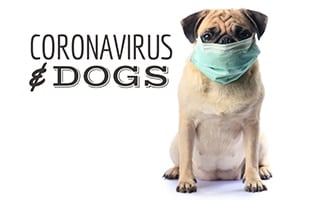
But did you know there’s actually a disease called canine coronavirus (CCV) that’s unrelated to this current outbreak in humans? Here’s everything you need to know about coronavirus in dogs and how to help your pup recover.
Article Overview
Latest News On COVID-19 & Pets
We’ll inform you of the latest news and recommendations when it comes to the novel coronavirus and how it affects you and your pets.
World Health Organization
The WHO says there is no evidence dogs or cats can catch or spread the COVID-19 coronavirus.
Second Dog In Hong Kong Tests Positive For COVID-19
A pet German Shepherd owned by a COVID-19-infected woman in Hong Kong has tested positive for the virus. The dog has been quarantined and will be repeatedly monitored and tested. The dog has no symptoms, and another pet dog from the home tested negative.
This second case comes on the heels of another pet dog in Hong Kong who tested a “weak positive” for COVID-19 in late February. That dog, who also had no symptoms, was put into quarantine but was released in mid-March when he tested negative.
Most experts, however, are still saying there’s no concrete evidence that dogs can catch COVID-19 from people. Then how did these dogs test positive? Since coronaviruses can live on objects and surfaces, then the theory is that they likely picked it up through environmental contamination, and there’s no actual infection.
CDC Recommendations For Pet Owners
The U.S. Centers for Disease Control and Prevention (CDC) says they have not received any reports of pets becoming sick with COVID-19, so there’s no evidence that pets can be infected or spread this virus.
But, just like surfaces in your home, your pets may also carry the disease on their fur. So, even if you are not showing any symptoms, it is wise to follow these precautionary practices:
- Wash your hands often before and after interacting with your pet.
- Minimize face licks and cuddles.
- Bathe pets more frequently.
- Keep your pet away from non-household members.
- Follow social distancing practices for all when out for a walk.
And, if you’re infected with COVID-19, here’s what the CDC is recommending:
- Avoid contact with pets — this includes snuggling, being kissed or licked and sharing food.
- Have someone else take care of your pet while you’re sick.
- If you must care for your pet while you’re sick, wear a face mask and wash your hands before and after every interaction.
Is your dog ready for a pandemic quarantine?
Quarantine-Safe Activities With Your Dog
We put together some exciting ways to have a fun (and safe) time with your dog while you’re staying home. Adding a touch of brightness to each day is crucial to getting by right now.
- Host A Virtual Puppy Playdate – Why not host a puppy playdate with your neighbors or friends? Dogs need interaction with other pups and “co-woofers” just as much as we do. Post on your neighborhood Facebook group or forum (like Nextdoor) to gauge interest. Then meet via Google Hangout or Zoom.
- Do Down Dog With Your Dog (“Doga”) – Yes, that’s right! YouTube is full of yoga and meditation exercises you can do with your pup. We put together a video playlist of easy stretches and poses. Just don’t forget to breathe!
- Take A Walk – Get some fresh air and stretch your legs. But, be sure to keep your pet away from non-household members and follow social distancing practices for all when out and about.
- Relax Into Spa Time – Just like surfaces in your home, your pets may also carry germs in their fur. So, more frequent bath times are encouraged, even if you’re not showing symptoms. Wash your hands before and after interacting with your pet and minimize face licks and cuddles.
- Binge TV Cuteness With Your Pup – Watch dog movies on Netflix or Animal Planet series “Too Cute” which showcases the lives of the adorable and cuddly animals.
Ways To Help Other Pups In Needs
If you don’t have a dog or you just want to help others, here are a few additional ways to help less fortunate animals.
- Adopt (Or Foster) A Dog In Need – Shelters across the country are at capacity and many are facing the decision to close their doors, creating an urgent need to find temporary (or permanent) places to live. What better way to shelter in place than with a puppy? Contact the animal service center in your area before visiting, as many are allowing visits by appointment only and may even be closed during normal business hours.
- Donate To An Animal Shelter – Even if you can’t adopt right now, shelters need supplies. Consider supporting shelters in your local area or in areas where the outbreak is most severe (New York, Washington, etc.).
Unlike humans, dogs have no clue what’s going on in the world with the Coronavirus (COVID-19) fears and uncertainty. But that doesn’t mean they should go unnoticed!
What Is Coronavirus In Dogs?
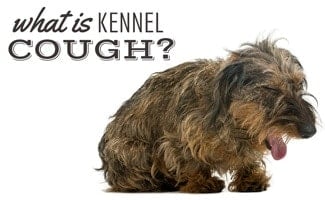
In many cases, dogs catch canine coronavirus by oral contact with feces from an infected dog. They can also catch it by eating from contaminated food bowls or through direct contact with a sick dog. Your dog is more likely to catch CCV in places where multiple dogs gather or are overcrowded (like in kennels).
There’s also a respiratory coronavirus (CRCoV) that dogs can catch. It’s related to kennel cough, is highly infectious in crowded spaces and causes coughing, fever and nasal discharge.
Symptoms
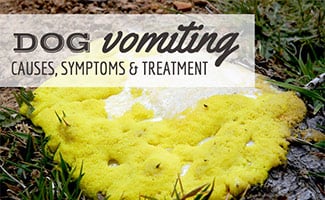
Puppies can experience more severe symptoms and complications from CCV. They may have more prolonged bouts of diarrhea and therefore, can suffer from dehydration. A rare but notable condition puppies can develop from CCV is enteritis (inflammation of the small intestine), and this can be life-threatening in severe cases. If you notice these symptoms in your puppy, contact your veterinarian immediately.
Treatment
Most adult dogs recover from a CCV infection on their own without the need for veterinary intervention or medication. If your dog has diarrhea, your vet may suggest withholding food until 24 hours after diarrhea ceases and gradually reintroducing small amounts of food.
Keep Your Dog Hydrated
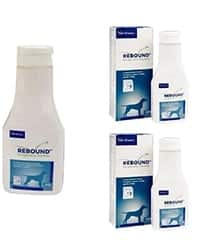
Unflavored Pedialyte is safe for dogs, or you can give them Rebound, a dog and cat-friendly liquid formula that contains essential vitamins and minerals to help your pet recover from illness. If your dog isn’t interested in drinking, you may need to use a feeding syringe. In this case, you’ll want to make sure your dog is getting at least 15 mL per pound of body weight per day to maintain sufficient hydration.
 What Are My Chances Of Contracting COVID-19?
What Are My Chances Of Contracting COVID-19?
See a detailed breakdown of coronavirus mortality rates in humans by age, gender, and health conditions in our COVID-19 Guide To The Pandemic on our sister site Safe Smart Living.
Not Sure What Your Dog Has?
If your dog has diarrhea and you’re not sure of the cause, read our comprehensive guide to diarrhea in dogs. We can help you narrow down the cause based on the type of diarrhea he’s having. And we also give you tips on how to keep your dog’s digestive tract healthy.
If your dog is suffering from respiratory problems, such as a runny nose, sneezing and coughing, there could be several culprits, including a cold, a dog flu or kennel cough. Read these articles to learn about symptoms and treatments for each type of disease.
Are you worried that your dog could have coronavirus?


